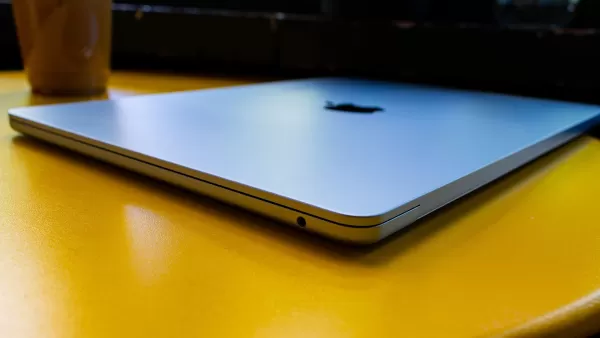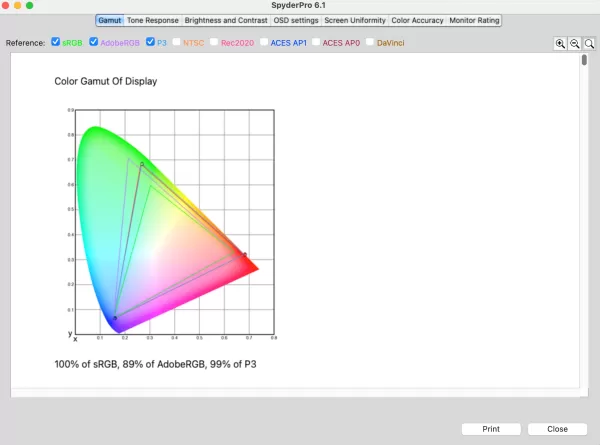by Thomas Jul 24,2025
Apple releases a new MacBook Air nearly every year, typically updating just the SoC (system on a chip) while keeping the overall design consistent. The 2025 model is no exception—the new 15-inch MacBook Air remains a sleek, lightweight powerhouse built for productivity, offering exceptional battery life and a stunning display that makes it ideal for everyday tasks.
It’s not designed for heavy gaming, and that’s perfectly fine. The MacBook Air has always been about portability and efficiency—this is the laptop you take everywhere to get work done, and it excels in that role.
The MacBook Air (M4, Early 2025) is now available, starting at $999 for the 13-inch version and $1,199 for the 15-inch model reviewed here. As with all Apple products, customization comes at a premium. You can upgrade to a configuration with 32GB of RAM and a 2TB SSD, bringing the price to $2,399—but for most users, the base model offers excellent value.

 View 6 Images
View 6 Images



The MacBook Air has become the blueprint for what many envision when they think of a modern laptop. Despite looking nearly identical to recent models, its design remains timeless. At just 3.3 pounds, the 15-inch model is remarkably light—an impressive feat for its size.
Its featherlight profile comes from the ultra-thin unibody aluminum chassis, measuring under half an inch thick. This minimalist construction isn’t just about aesthetics; it makes the laptop incredibly portable, especially compared to bulkier machines like gaming laptops. The entire device feels seamless, with no unsightly vents or grilles—thanks to its fanless design.
One standout feature is the speaker placement. Unlike the MacBook Pro, which has visible speaker grilles beside the keyboard, the Air hides its speakers within the hinge, directing sound toward the display. While this might seem counterintuitive, Apple engineered it to use the lid as a natural amplifier, resulting in surprisingly loud and clear audio.
The absence of fans also contributes to the clean exterior. There are no ventilation holes anywhere—just four small rubber feet on the bottom to prevent scratches. Up top, the keyboard retains the reliable scissor-switch mechanism with deep key travel, offering a satisfying typing experience. Key repeats are a thing of the past, and the integrated Touch ID sensor in the top-right corner delivers fast, accurate authentication.
The trackpad continues to set the industry standard—spacious, responsive, and equipped with excellent palm rejection. Whether typing long documents or navigating complex workflows, it performs flawlessly. Apple still leads the pack when it comes to touchpad quality.
Ports, however, remain minimal. On the left side, you’ll find two USB-C ports and the MagSafe connector. The right side only includes a headphone jack. While retaining the headphone jack is appreciated, the lack of additional ports—like an SD card reader or extra USB-C—feels like a missed opportunity, especially given the MacBook Pro manages more in a slightly thicker frame.

The 15.3-inch Liquid Retina display delivers vibrant visuals with sharp detail, making it perfect for both work and entertainment. While not quite matching the Pro models, it outperforms most Windows laptops in its class.
With a resolution of 1880p, the panel covers 99% of the DCI-P3 color gamut and 100% of sRGB, ensuring rich, accurate colors. Brightness peaks at 426 nits—slightly below Apple’s claimed 500 nits—but still more than sufficient for indoor use and decent under bright lighting.
Though it doesn’t feature OLED technology, the display handles glare well and provides excellent viewing angles. Over the past few weeks, I’ve used it extensively for video streaming, including rewatching The Clone Wars, and the color accuracy and clarity made the experience truly enjoyable.

Benchmarking macOS devices presents challenges, as many standard testing tools aren’t compatible. However, given that this model runs a fanless variant of the Apple M4 chip, it’s not intended to compete with high-performance gaming laptops.
In gaming tests, performance predictably lags. Total War: Warhammer 3 delivered only 18 fps at Ultra settings (1080p), improving to 34 fps on Medium. Assassin’s Creed Shadows fared worse, averaging 10 fps on Ultra and 19 fps on Medium—far from playable. But again, gaming isn’t the Air’s purpose.
Where it shines is productivity. I routinely ran 50+ Safari tabs while streaming music via Apple Music, and the system handled everything effortlessly. The review unit came equipped with 32GB of RAM, which undoubtedly helped, but even under heavy multitasking, there were no hiccups—often running entirely on battery.
Light creative tasks like basic Photoshop edits were manageable, though more intensive operations (like noise reduction in Lightroom) caused slowdowns—issues even higher-end MacBooks sometimes face. For general office work, content creation, and web-based tasks, the MacBook Air performs superbly.

Apple claims up to 18 hours of video playback and 15 hours of web browsing. In real-world testing, I looped local video playback using VLC Media Player and achieved an impressive 19 hours and 15 minutes—surpassing Apple’s estimate.
While local playback is slightly less taxing than streaming, the difference is marginal. Without a standardized office workload test on macOS, I relied on daily usage patterns: multiple 4- to 5-hour work sessions over several days without needing to recharge. This kind of endurance makes the MacBook Air ideal for travelers, students, or anyone who needs all-day power without access to an outlet.
Even the included compact charger makes it easy to carry and top up whenever needed. For a machine this thin and light, the battery performance is nothing short of outstanding.
Zenless Zone Zero Update Cycle Leak Hints at Future Content cadence
All Mavuika Materials, Kit, and Constellations in Genshin Impact
Best Xbox Game Pass Games For Kids (January 2025)
Marvel Rivals: Season 1 Dracula Explained
Solo Leveling: Global Tournament Draws Near
Power Rangers: Uncover Hidden Secrets in Rita's Carnival and Cemetery
Counterfeit Bank Simulator: Minting Solution for Economic Crises
Roblox: Anime Auras RNG Codes (January 2025)

Bandai Namco Ends PAC-MAN Mobile Service
Sep 13,2025

Top Open-World Xbox Game Pass Titles for January 2025
Sep 11,2025

Borderlands 4 Unveils Loot, Co-op, Map Upgrades at PAX East
Sep 08,2025

"Pirate: A Swashbuckling Puzzle Adventure Launches on Android"
Sep 08,2025
AMC Slashes Midweek Ticket Prices by 50% Starting July to Boost Attendance
Sep 07,2025